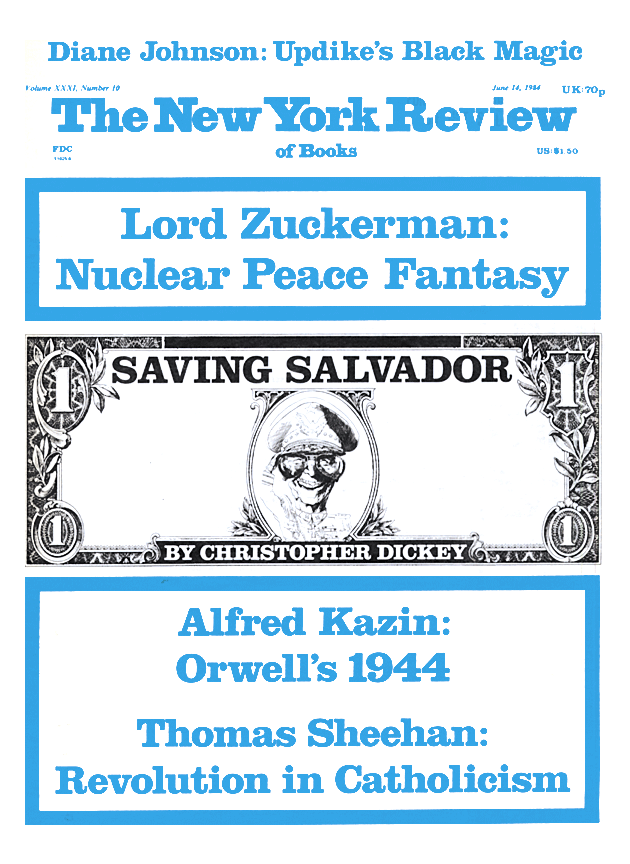In response to:
Mother and Son from the March 1, 1984 issue
To the Editors:
It is pleasant, in the bicentenary year of Samuel Johnson’s death, to find him still powerfully influencing contemporary writers. I refer to Anthony West’s explanation [NYR, March 1] that he named the “narrator-hero” of his roman à clef Heritage after Richard Savage, “whose mother did her level best to get him hanged.”
Savage would now be buried in the limbo of mediocre and impecunious eighteenth-century hacks had it not been for young Johnson’s brilliant and passionately apologetic biography of his near-psychopathic friend. Mr. West seems to have swallowed as uncritically as Johnson, and with as much relish, Savage’s fantasy (or scam) about his remorseless persecution by this wicked woman, who seems to belong to one of the Grimms’ fairy tales rather than to the human race. Psychoanalysts have been having a field day for decades, not only over Savage, but over Johnson’s attitude toward his own mother, whom, in spite of protestations of filial devotion, he managed to avoid seeing for the last twenty years of her life.
It should be pointed out that much research, especially by that fine scholar Clarence Tracy, author of the standard modern biography of Savage, has been unable to uncover any scrap of evidence, apart from Savage’s stories, that he was related to the Countess of Macclesfield at all. If so, the transactions related by Johnson may appear as a record of persecution of Lady Macclesfield by Savage, rather than the other way round.
Donald Greene
University of Southern California
Los Angeles, California
Anthony West replies:
While it is jolly decent of Donald Greene to allow that I am a contemporary writer, and to own that he has run his eye over at any rate the first eight lines of my memoir of Life with Mother, there are few other concessions, whether to good manners or to common sense, in his preposterous letter. Its basic premise, that its author, today of University Park, Los Angeles, California, has to be considered a better judge of Richard Savage’s credibility than Samuel Johnson, is quite simply absurd. Mr. Greene was never within two hundred years of the poet himself, or within three lives of anyone who will have known him to speak to. The world of Savage’s intimacies, and of his public performance, to which Mr. Greene is of necessity a complete stranger, was precisely that of Johnson’s vital experience. It is not just that he was there, he was intelligently and perceptively there. I have little hope of persuading Mr. Greene to lay aside his prejudices against the man and the conventions of his period for long enough to read Johnson’s Brief Life of Savage through to its end, but I will assure him that it is not the passionate apology that he presently assumes it to be. He would be well advised, however, not to take my word for it, but to try to at least skim Johnson’s summation, in which all that there is to say about the nice balance of virtues and defects in Savage’s make up is said. If he does so he will most probably save himself from repeating the gaffe he has made in supposing Johnson capable of swallowing anything that Savage might put to him uncritically.
This Issue
June 14, 1984


